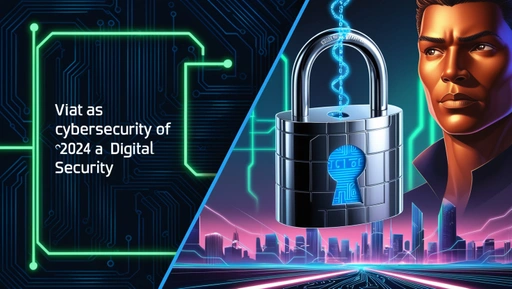Cybersecurity Experts: The Guardians of the Digital Age

In a world increasingly dependent on digital infrastructure, cybersecurity experts have emerged as the unsung heroes safeguarding sensitive information, financial assets, and personal data. As cyber threats evolve in complexity and frequency, the role of cybersecurity professionals has become indispensable. This article explores the critical importance of cybersecurity experts, the challenges they face, and why this profession is one of the most vital in the digital age.
The Growing Importance of Cybersecurity
The global shift towards digitalization has created unprecedented opportunities for innovation and connectivity. However, it has also exposed vulnerabilities in systems, making them prime targets for cybercriminals. From data breaches to ransomware attacks, the impact of cyber threats can be catastrophic for individuals, businesses, and governments.
Key Drivers for Cybersecurity:
- Digital Transformation: As organizations digitize operations, the attack surface for cybercriminals expands.
- Remote Work: The rise of remote and hybrid work models has increased reliance on cloud services, making robust security essential.
- Evolving Threats: Cyberattacks are becoming more sophisticated, often leveraging AI and machine learning.
- Regulatory Compliance: Governments worldwide are implementing stricter data protection laws, requiring businesses to prioritize cybersecurity.
Roles and Responsibilities of Cybersecurity Experts
Cybersecurity experts protect digital assets by identifying vulnerabilities, preventing breaches, and responding to incidents. Their roles are diverse, encompassing technical, strategic, and investigative tasks.
Common Roles in Cybersecurity:
- Security Analyst: Monitors systems, detects threats, and implements measures to mitigate risks.
- Penetration Tester: Conducts simulated attacks to identify weaknesses in networks and applications.
- Incident Responder: Manages and mitigates the impact of cybersecurity incidents.
- Security Architect: Designs secure systems and protocols to prevent unauthorized access.
- Chief Information Security Officer (CISO): Oversees an organization’s cybersecurity strategy and ensures regulatory compliance.
Skills Required for Cybersecurity Professionals
Cybersecurity is a multidisciplinary field requiring a mix of technical expertise, problem-solving skills, and strategic thinking. Aspiring cybersecurity experts should focus on the following competencies:
- Technical Proficiency: Knowledge of programming languages, network protocols, and operating systems.
- Risk Assessment: The ability to identify and prioritize potential threats.
- Incident Management: Skills in responding to and mitigating cyberattacks.
- Continuous Learning: Staying updated with the latest cyber threats and security technologies.
- Communication: Effectively conveying technical information to non-technical stakeholders.
The Evolving Threat Landscape
Cybersecurity experts face a constantly evolving threat landscape. Attackers are using advanced tactics, from phishing and social engineering to zero-day exploits and AI-driven malware. Emerging technologies like the Internet of Things (IoT) and blockchain also present new vulnerabilities.
Common Cyber Threats:
- Ransomware: Malicious software that locks systems until a ransom is paid.
- Phishing: Fraudulent attempts to steal sensitive information through deceptive emails or messages.
- DDoS Attacks: Overwhelming systems with traffic to disrupt services.
- Insider Threats: Security breaches caused by employees or contractors.

Industries in Need of Cybersecurity Experts
Cybersecurity is a universal necessity, but some industries are particularly vulnerable to cyber threats:
- Finance: Protecting sensitive financial data and preventing fraud.
- Healthcare: Safeguarding patient records and medical devices from breaches.
- Government: Securing national infrastructure and classified information.
- Retail: Preventing data theft from e-commerce platforms and point-of-sale systems.
- Energy: Protecting critical infrastructure from cyberattacks that could disrupt utilities.
Challenges in Cybersecurity
Despite the growing demand for cybersecurity experts, the field faces several challenges:
- Talent Shortage: A global shortage of skilled cybersecurity professionals leaves organizations vulnerable.
- Rapid Technological Change: Keeping pace with evolving technologies and threats is a constant challenge.
- Budget Constraints: Many organizations struggle to allocate sufficient resources for comprehensive cybersecurity.
- Burnout: The high-stress nature of the job can lead to burnout among cybersecurity professionals.
The Future of Cybersecurity
The importance of cybersecurity will only grow as digital technologies continue to advance. Key trends shaping the future of this field include:
- AI and Automation: Leveraging AI to detect and respond to threats in real time.
- Quantum Computing: Preparing for the security challenges posed by quantum technology.
- Cybersecurity-as-a-Service: Outsourcing security functions to specialized providers.
- Focus on Privacy: Ensuring compliance with stricter data protection regulations.
- Cybersecurity Education: Expanding training programs to address the talent gap.

Conclusion
Cybersecurity experts are the guardians of the digital age, playing a critical role in protecting the systems and data that underpin modern life. As cyber threats continue to evolve, the demand for skilled professionals in this field will only increase. For those seeking a challenging and impactful career, cybersecurity offers a unique opportunity to make a difference in an interconnected world. By staying ahead of emerging threats and embracing innovation, cybersecurity experts will remain at the forefront of digital defense for years to come.






